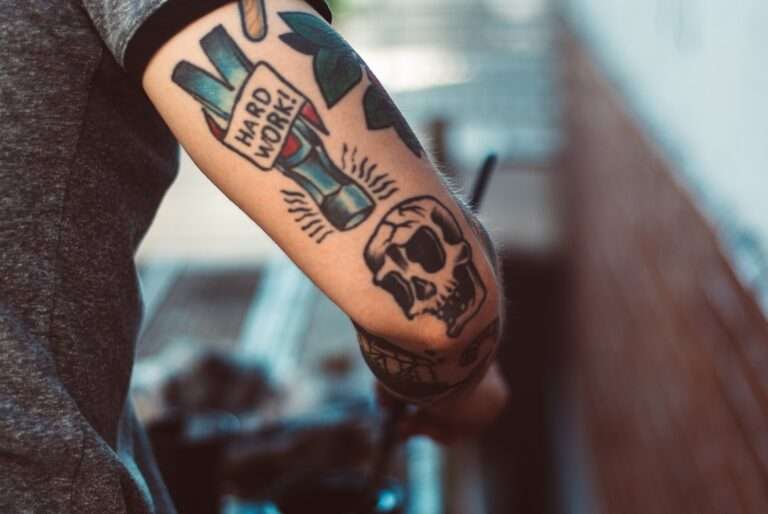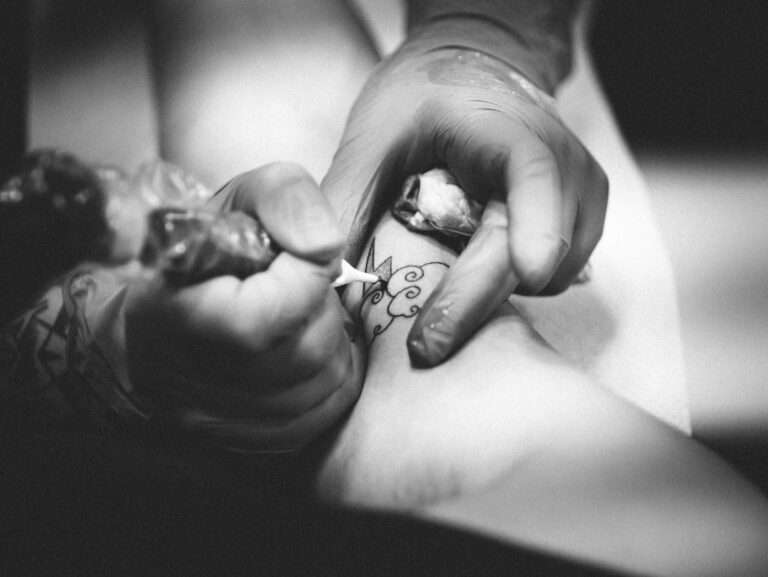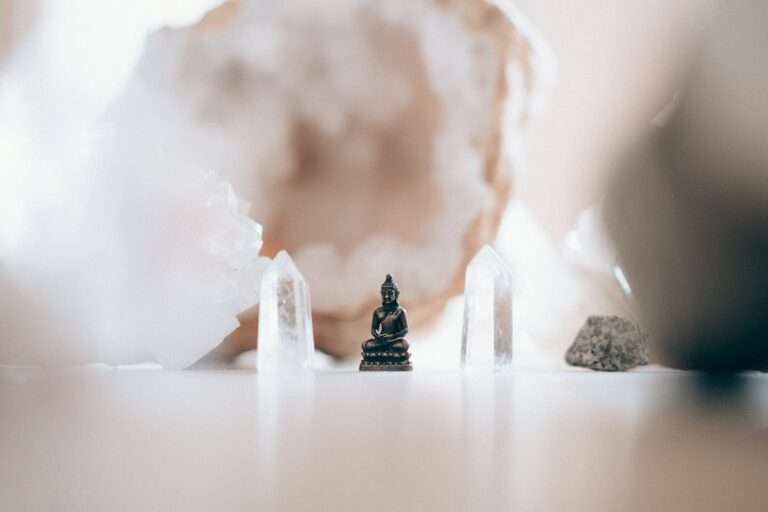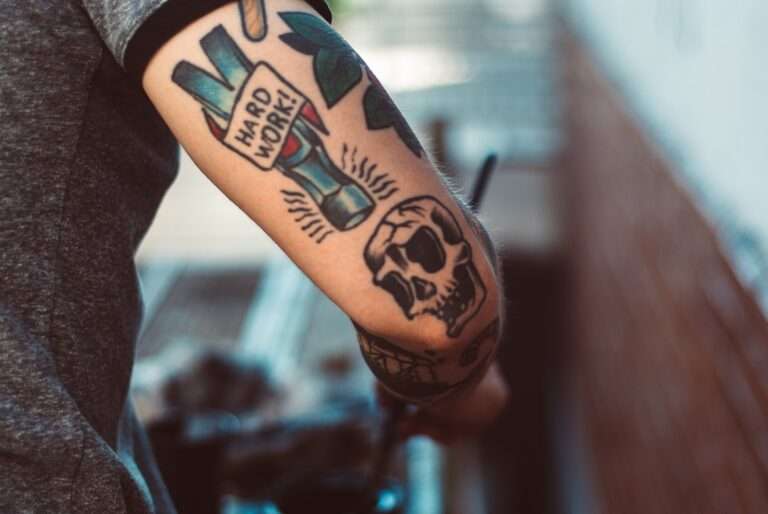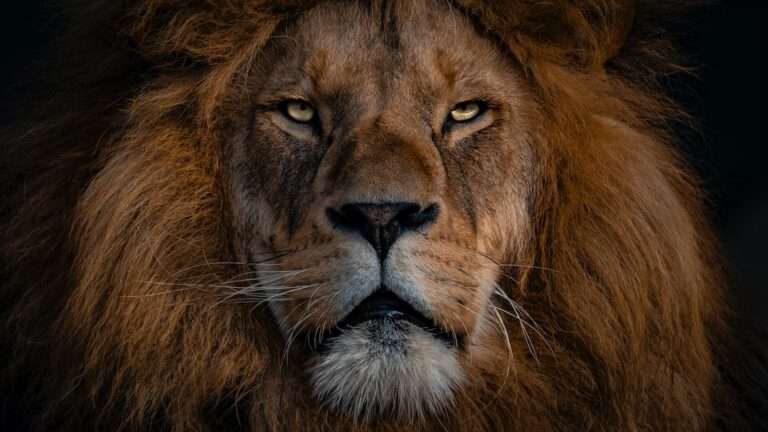The Symbolic Meaning Behind Angel and Demon Tattoos

Human nature is a complex and multifaceted concept, often characterized by a duality that encompasses both light and darkness. This duality is a fundamental aspect of the human experience, representing the constant struggle between good and evil, virtue and temptation. One way that people express this duality is through tattoos, specifically angel and demon tattoos. These tattoos serve as visual representations of the conflicting forces within us, and they hold deep symbolic meaning.
The Symbolic Meaning of Angel Tattoos: Representing Virtue and Purity
Angel tattoos are often associated with virtue, purity, and divine protection. Angels are seen as celestial beings who embody goodness and righteousness. They are messengers of God, tasked with guiding and protecting humanity. Angel tattoos can symbolize a person’s desire to embody these virtuous qualities or serve as a reminder of their faith.
There are various types of angel tattoos, each with its own unique symbolism. For example, a guardian angel tattoo represents protection and guidance. It serves as a reminder that there is always someone watching over us, guiding us through life’s challenges. Another popular design is the fallen angel tattoo, which represents rebellion or a struggle with one’s own inner demons.
The Symbolic Meaning of Demon Tattoos: Representing Temptation and Evil
In contrast to angel tattoos, demon tattoos represent temptation, darkness, and evil. Demons are often depicted as malevolent beings who seek to corrupt and destroy. These tattoos can symbolize a person’s fascination with the darker aspects of human nature or serve as a reminder of the constant battle between good and evil within themselves.
Similar to angel tattoos, there are different types of demon tattoos that carry distinct meanings. A devil tattoo, for example, represents rebellion, mischief, or a desire to embrace one’s darker side. On the other hand, a demon tattoo can symbolize a person’s struggle with their own inner demons or their ability to overcome adversity.
The Historical Significance of Angel and Demon Tattoos in Different Cultures
The symbolism of angel and demon tattoos has evolved over time and varies across different cultures. In ancient civilizations, such as Mesopotamia and Egypt, angels and demons were often depicted in religious texts and artwork. These depictions reflected the cultural beliefs and values of the time.
In Christianity, angels are seen as divine messengers and guardians, while demons are associated with temptation and evil. Angel and demon tattoos have long been a part of Christian iconography, serving as a visual representation of one’s faith or personal connection to the divine.
In other cultures, such as Japanese mythology, there are various supernatural beings that resemble angels or demons. For example, the Tengu is a creature from Japanese folklore that is often depicted as a bird-like demon. In this context, angel and demon tattoos can represent a connection to ancestral spirits or a reverence for traditional beliefs.
The Psychological Implications of Angel and Demon Tattoos: Exploring the Human Psyche
The decision to get an angel or demon tattoo can be influenced by various psychological factors. For some individuals, these tattoos may serve as a form of self-expression or a way to explore their own inner conflicts. The duality represented by these tattoos can reflect the complexity of human nature and the internal struggles that individuals face.
Additionally, angel and demon tattoos can be deeply personal, representing a person’s beliefs or experiences. For example, someone who has overcome addiction may choose to get a demon tattoo as a reminder of their past struggles and their ability to overcome them. These tattoos can serve as powerful symbols of personal growth and resilience.
Furthermore, getting an angel or demon tattoo can have therapeutic benefits for some individuals. The process of getting a tattoo can be cathartic, allowing individuals to express their emotions or release pent-up feelings. The permanence of a tattoo can also serve as a constant reminder of personal values or goals, providing motivation and support during difficult times.
Angel and Demon Tattoos as a Form of Self-Expression: Personalizing the Symbolism
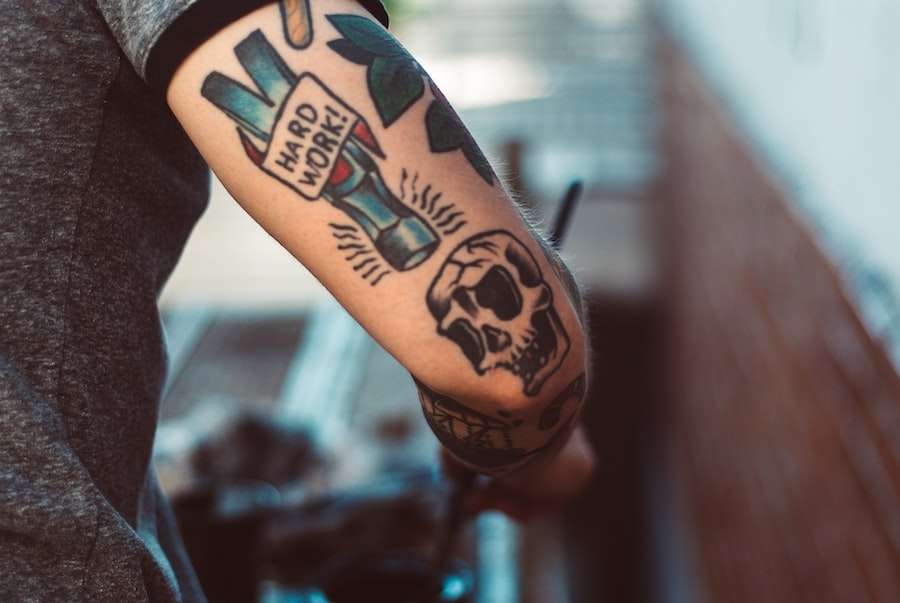
One of the unique aspects of angel and demon tattoos is the ability to personalize their symbolism. People often incorporate their own beliefs, experiences, or cultural backgrounds into these tattoos, making them deeply meaningful and personal.
For example, someone with a strong connection to their Irish heritage may choose to get an angel tattoo with Celtic knotwork or other traditional Irish symbols. This combination of angelic imagery and cultural symbolism creates a tattoo that is not only visually striking but also deeply significant to the individual.
Similarly, someone who has experienced a personal transformation may choose to get a demon tattoo that represents their journey. They may incorporate symbols of growth or change into the design, such as flowers or butterflies, to represent their personal evolution.
The Spiritual Significance of Angel and Demon Tattoos: Connecting with Higher Powers
For many individuals, angel and demon tattoos hold deep spiritual significance. These tattoos can serve as a way to connect with higher powers or express one’s spirituality or religious beliefs.
In some spiritual traditions, angels are seen as intermediaries between humans and the divine. Getting an angel tattoo can be a way to invoke divine protection or seek guidance from higher powers. Similarly, demon tattoos can be seen as a way to confront and overcome personal demons or negative energies.
These tattoos can also serve as a visual representation of one’s faith or religious beliefs. For example, someone who follows the Wiccan tradition may choose to get an angel or demon tattoo that reflects their connection to nature or their belief in the balance between light and dark.
The Social Stigma Attached to Angel and Demon Tattoos: Overcoming Stereotypes
Unfortunately, there is often a social stigma attached to angel and demon tattoos. People with these tattoos are often judged or discriminated against based on stereotypes and misconceptions. They may be seen as rebellious, dangerous, or associated with criminal behavior.
However, it is important to challenge these stereotypes and promote acceptance of angel and demon tattoos as valid forms of self-expression. These tattoos hold deep personal meaning for individuals and should be respected as such. By educating others about the symbolism and significance of these tattoos, we can help break down the barriers and promote understanding.
The Artistic Value of Angel and Demon Tattoos: Appreciating the Aesthetics
Beyond their symbolic meaning, angel and demon tattoos also hold artistic value. Tattoo artists use various styles and techniques to create intricate and visually stunning designs.
From realistic portraits to abstract interpretations, there is a wide range of artistic styles to choose from when it comes to angel and demon tattoos. Some people prefer black and gray realism, while others opt for bold colors and intricate linework. The versatility of these tattoos allows individuals to find a design that resonates with their personal aesthetic preferences.
Embracing the Dual Nature of Humanity through Angel and Demon Tattoos
In conclusion, angel and demon tattoos serve as powerful symbols of the dual nature of humanity. They represent the constant struggle between good and evil, virtue and temptation. These tattoos hold deep symbolic meaning and can be personalized to reflect an individual’s beliefs, experiences, or cultural background.
While there may be social stigma attached to angel and demon tattoos, it is important to challenge these stereotypes and promote acceptance. These tattoos are valid forms of self-expression that allow individuals to embrace their own duality and connect with higher powers or personal beliefs.
Ultimately, getting an angel or demon tattoo is a deeply personal decision that should be made with careful consideration. It is a way to embrace one’s own complexity and express it through art on the canvas of the body.
If you’re fascinated by the symbolism behind tattoos, you might also be interested in exploring the meaning behind angel and demon tattoos. These intricate designs often represent the eternal struggle between good and evil. To delve deeper into this topic, check out this article on the symbolism of angel and demon tattoos. It explores the various interpretations and cultural significance of these powerful symbols.
FAQs
What is the meaning of an angel demon tattoo?
An angel demon tattoo is a design that combines both an angel and a demon in one image. The meaning behind this tattoo can vary depending on the individual, but it often represents the struggle between good and evil or the duality of human nature.
What does an angel represent in an angel demon tattoo?
An angel in an angel demon tattoo typically represents purity, goodness, and protection. It can also symbolize spirituality and a connection to a higher power.
What does a demon represent in an angel demon tattoo?
A demon in an angel demon tattoo typically represents evil, temptation, and chaos. It can also symbolize the darker aspects of human nature and the struggle to resist temptation.
What are some common designs for an angel demon tattoo?
Common designs for an angel demon tattoo include an angel and demon facing off against each other, an angel with demon wings or horns, or a demon with angel wings or a halo. The design can be realistic or stylized, and may incorporate other elements such as flames or swords.
What are some popular placements for an angel demon tattoo?
Popular placements for an angel demon tattoo include the upper arm, back, chest, and thigh. The size and placement of the tattoo can vary depending on the individual’s preference and the design of the tattoo.
Is an angel demon tattoo considered a religious tattoo?
An angel demon tattoo can be considered a religious tattoo, as it often incorporates elements of spirituality and the struggle between good and evil. However, it can also be viewed as a more general symbol of duality and the complexity of human nature.
